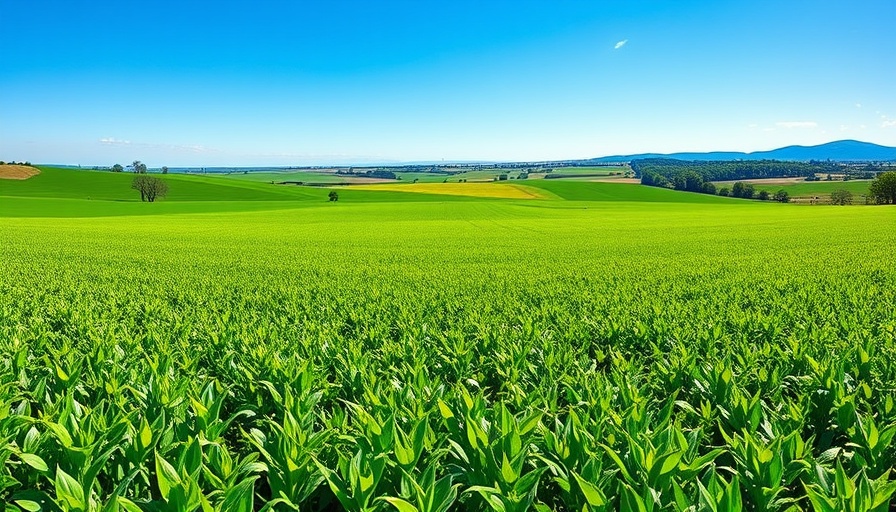
Is Climate Change Stealing Nutrition from Our Plates?
Climate change is often portrayed as an apocalyptic narrative, with images of drought-stricken fields and flooded cities swirling in our minds. But what if the weather was actually stealing the nutrition right off our plates? A recent study revealed that the impacts of climate change—rising temperatures and increasing carbon dioxide levels—are deleteriously affecting the nutrient value of crops. If this doesn’t get you thinking, then we’ve got some serious button-pressing to do!
What the Research Reveals: Crops Under Stress
Presented at the Society for Experimental Biology’s Annual Conference in Antwerp, Belgium, this study places a spotlight on one of the more overlooked implications of climate change. Lead researcher Jiata Ugwah Ekele from Liverpool John Moores University explained how they grew leafy greens like spinach and kale under conditions mimicking future climate scenarios. They assessed not just the quantity but the quality of these crops—because, let’s be real, nobody wants to eat a mountain of spinach that’s devoid of vitamins!
This innovative approach involved high-performance liquid chromatography and x-ray fluorescence to examine the nutrient profiles of the plants. Ekele's findings indicated that while some crops grew larger with lower levels of warming, their nutritional content took a hit, with declines particularly noted in essential nutrients like calcium. Even worse, as we crank up the greenhouse gas emissions, the plants not only lost more of their nutrient richness but also struggled just to grow!
The Irony: More Sugar, Less Nutrition
Think about this: we might be seeing higher sugar levels in some crops as carbon emissions climb, which sounds sweet—but it comes at a steep price. Essential nutrients decline, and that’s a significant setback for our health. It’s almost like trading in a shiny sports car for a bicycle with a flat tire. Sure, they’re both transportation, but one is better suited for the long haul!
How Will This Impact Our Food Systems?
As Ekele rightly noted, “It’s not just about how much food we grow, but also what’s inside that food and how it supports long-term human wellbeing.” We might be ignoring a profound issue here: as we scramble to grow enough crops to meet future demands, the very quality of what we consume is under siege. This could lead to an epidemic of nutrient deficiencies in our diets, particularly among populations reliant on these traditionally nutritious staples.
Understanding the Bigger Picture: Health and Resilience
With a brief look at past studies, it turns out some of our most critical crops, such as soybeans and wheat, are already at risk from climate changes. Like the UK's strawberries potentially becoming a seasonal rarity, we may all need to rethink our food systems. Ekele’s research invites us to consider how our agricultural practices and food choices may need to evolve in tandem with rising temperatures.
The Path Forward: Seeking Solutions
The study's findings are still evolving, and Ekele's team is on the lookout for collaborators to illuminate these nutritional changes and shape policies that are more resilient against climate change. We need to generate ideas for a food system that doesn’t just focus on quantity but also prioritizes health and equity.
In Conclusion: The Call for Action
As eco-conscious consumers, it’s crucial to advocate for policies that prioritize nutritional quality in our food supply. We must demand sustainable practices from our agricultural systems and support local farmers who aim to provide nutritionally-dense crops. Let’s unite in cultivating awareness about the connection between climate change and our plates. The health of our future generations depends on it!
So, what’s your take? How are you addressing your nutrition amidst the challenges posed by climate change? Share your thoughts and let’s work towards a healthier, more resilient food system!
 Add Row
Add Row  Add
Add 




 Add Row
Add Row  Add
Add 

Write A Comment